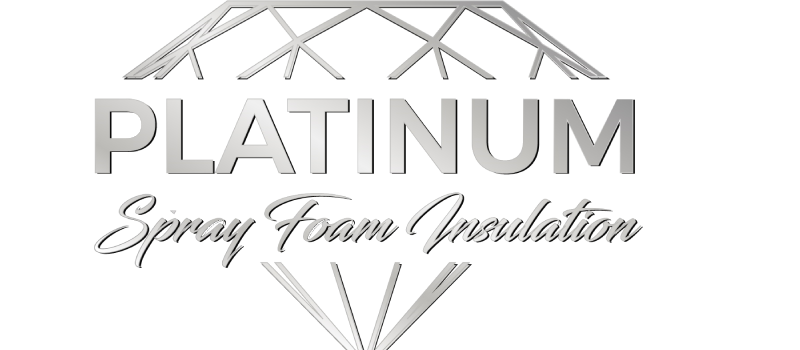Insulating your house is a smart idea in 2025. It can lower your energy costs and make your house cozier. Platinum Spray foam insulation is a wise investment for both homes and businesses for a number of reasons, including longevity, ease of installation, airtight sealing, and noise reduction. As winter approaches, energy bills can cross limits, so it is one of the best ways to lower your carbon footprint and save money on your monthly energy bills. You will discover why spray foam insulation is a better option for homeowners these days in this guide.
1. Behind The Name: What Spray Foam Insulation Truly Means
Spray polyurethane foam (SPF), commonly referred to as spray foam insulation, is becoming more and more popular as an alternative to traditional insulation. When sprayed onto surfaces, this liquid polymer expands to fill in spaces and create a seal. It is frequently utilized in crawl spaces, attics, and new construction, especially in places that are difficult to access, like attics. By sealing the building envelope and facilitating insulation, spray foam also aids in lowering air infiltration.
2. Pick Your Spray Foam: Open-Cell Foam vs Closed-Cell Foam
Platinum Spray foam insulation is becoming more and more well-known for its many advantages, especially because it comes in two varieties that enhance indoor air quality, energy efficiency, and general building comfort.
Here are the two different forms of spray foam insulation for your walls, attic, and ceilings:
Open-Cell Foam
Half-pound foam, another name for open-cell polyurethane foam insulation, is typically the lighter choice. The density of open-cell foam is insufficient to function as a barrier against moisture, vapor, or water. As a result, it cannot be used in places like bathrooms or foundations where there is a chance of moisture or vapor exposure.
Closed-Cell Foam
Two-pound foam, another name for closed-cell polyurethane foam, is significantly denser and provides moisture and air resistance. This kind of foam insulation is most frequently used as an insulator for foundations and any other area of your home where a vapor barrier is required due to its capacity to repel moisture or vapor.
Most builders prefer closed-cell foam insulation due to its higher R-value.
3. Seal the Deal: Why Platinum Spray Foam Delivers More Than Just Insulation
The market for spray foam insulation is anticipated to grow steadily in 2025 due to the demand for energy-efficient insulation and the construction industry.
Let’s talk about a few ways that spray foam insulation offers benefits beyond insulation:
Superior Thermal Performance: High R-Value
Compared to more conventional insulation materials like fiberglass and cellulose, spray foam insulation has a substantially higher R-value and provides better thermal performance.
| Did you know the R-value of Open and Closed spray foam?
Open-cell spray foam: R-3.5 to R-4 per inch
Closed-cell spray foam: R-6 and R-7 per inch.
|
Moisture Control
Because of its excellent moisture control qualities, spray foam insulation is a popular option for homeowners. Its tight adherence to surfaces stops moisture seepage, and its closed-cell structure inhibits the growth and rot of mold.
Environmentally Friendly
Because of its long lifespan, energy-saving qualities, and environmentally friendly production methods, spray foam insulation is a sustainable option. It uses renewable materials, conserves resources, and lowers greenhouse gas emissions.
Energy Efficiency = Long-Term Savings
By forming an airtight seal to stop heat loss and maintain a constant interior temperature, spray foam insulation provides exceptional energy efficiency. It is a recommended option for energy efficiency due to its sealing qualities and thermal efficiency.
Improved Indoor Air Quality
Choosing spray foam insulation as a long-term investment pays dividends for your indoor air quality. The prevention of air leakage and moisture intrusion, coupled with reduced allergens and pollutants, contributes to a healthier living space for years to come.
Noise Reduction
By lowering noise pollution and airborne noise, spray foam insulation enhances indoor air quality. By absorbing sound waves, it reduces street noise and offers seclusion. By stopping air leaks, spray foam insulation ensures cleaner, more breathable air.
4. Conclusion
In conclusion, spray foam insulation is a great option for anyone wishing to increase the comfort and energy efficiency of their house or building. For this type of insulation to be installed correctly and perform well over time, hiring a professional insulation contractor is essential. When selecting a contractor, keep in mind to communicate your needs and conduct research. The long-term advantages of spray foam insulation outweigh any potential higher initial costs. Therefore, don’t put off scheduling your home insulation any longer; do it now to begin enjoying the benefits of improved insulation!
FAQs
In what situations is spray foam insulation inappropriate?
Directly applying spray foam to the roof deck may result in problems with leak detection and roof warranties.
Does spray foam insulation last forever?
When installed and maintained correctly, spray foam insulation can last for 50 years or longer, making it a more permanent choice.
Does spray foam conduct electricity?
When used properly, spray foam is generally safe to use around electrical wires. Proper foam spraying creates a seal that can stop air leaks and boost energy efficiency.
How much does spray-form foam insulation cost?
The cost of spray foam insulation varies widely, typically ranging from $1 to $5 per square foot. This price range is influenced by factors like project size, foam type, and installation complexity.
How long is the lifespan of spray foam insulation?
When installed correctly, spray foam insulation can last for a very long time—typically 80 to 100 years.

